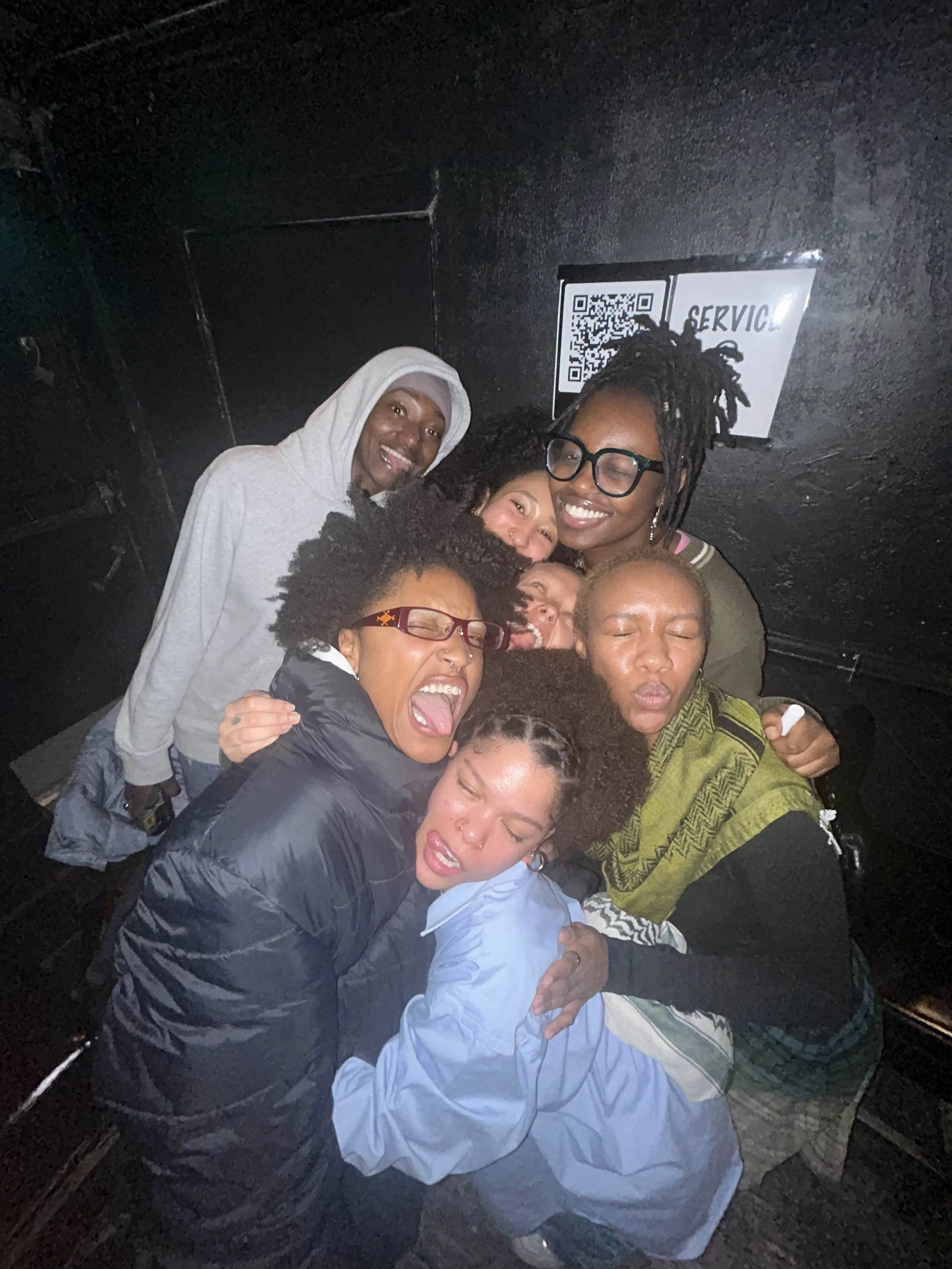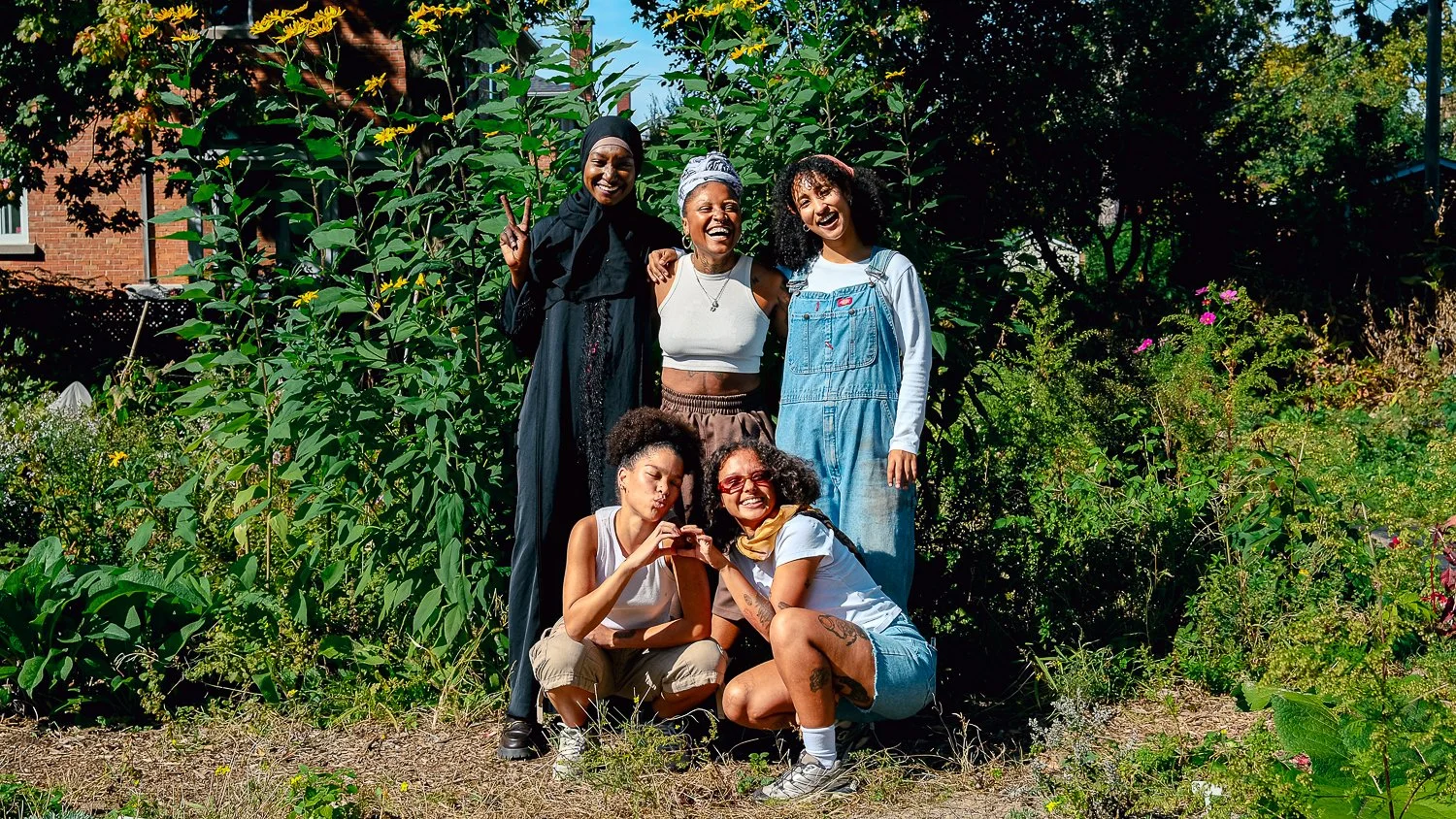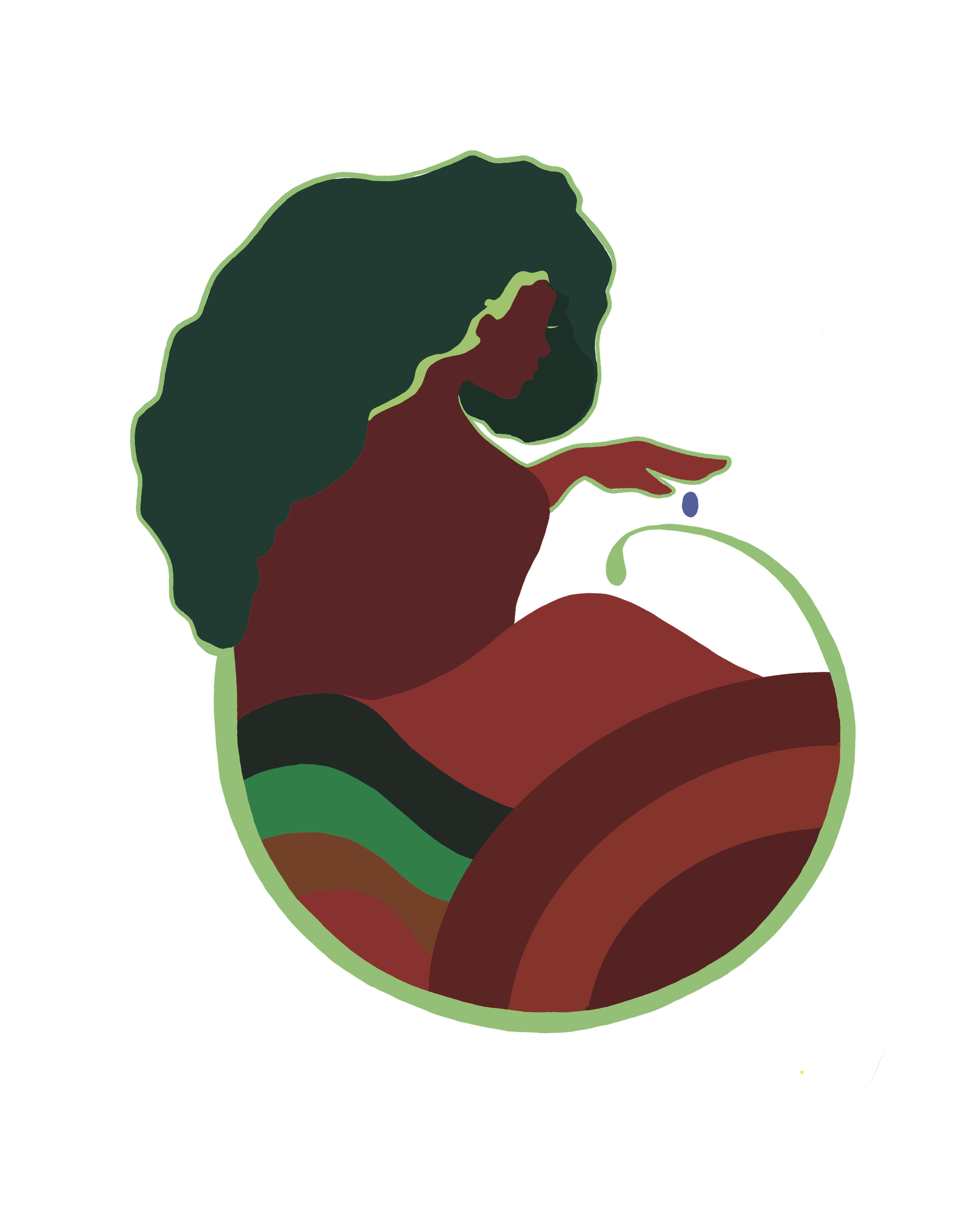Who
are we?
We are an Afro-Indigenous farming collective dedicated to reclaiming ancestral agricultural knowledge, stewarding land, and building food sovereignty for our communities. Our journey began at Concordia University, where we, as students and climate activists, recognized the urgent need for a farming initiative that centered Black and Indigenous food autonomy. Inspired by Farming While Black, two of our founders saw the absence of such a movement in Montreal—let alone in Canada—and knew we had to create it ourselves. Bringing together other Black community members, climate justice activists, and students, we formed Sankofa and began our journey on a humble plot at Concordia’s Loyola Campus. As our vision grew, we were graciously offered two acres of land in Senneville, allowing us to expand our impact.
Operating across multiple locations in Quebec, we grow food in Senneville and Montreal, with the long-term goal of establishing a permanent farm in Montreal. By growing our own food, preserving traditional knowledge, and redistributing resources, we are actively breaking cycles of dependence and ensuring that future generations have the tools to thrive. Stewarding our own land is central to our mission, allowing us to have complete control over what we grow and how we grow it, without relying on external systems that have historically excluded us. Through sustainable farming, seed saving, afro-agricultural programming, and ecological restoration, we are not just cultivating food—we are reclaiming our relationship with the land, strengthening our communities, and planting the seeds for a more just and abundant future.
Our Values
In the spirit of Afro-descendant ethics and resilience, we celebrate, value, uplift and practice the teachings of Kwanzaa. Harambe!
-
Nia stands for purpose, particularly the collective purpose of building and developing communities that restore the greatness of our people.Within the Sankofa Farming Collective, Nia represents the collective goal of rekindling Afro-Indigenous agricultural traditions and uplifting the community through restoration and sustenance. It’s about recognizing and dedicating ourselves to the broader mission of the collective, which is to revive and preserve cultural practices, food sovereignty, community health for future generation and learning the languages of the land to build authentic connections and foster cultural connection.
-
Kuumba encourages creativity, calling on us to always do as much as we can, in the way we can, to leave our community more beautiful and beneficial than we inherited it,calling on us to exercise our ancestral rights to dream, create and beautify our world and community.Within the Sankofa Farming Collective, Kuumba is expressed through innovative farming techniques, creative problem-solving, and artistic expression that reflects Afro-Indigenous cultural practices. Art within the collective is also a pathway to healing that we prioritize, using it as a means to mend and strengthen the community’s spirit. Kuumba is about finding new ways to engage with the land, celebrate traditions, and deepen the community’s relationship with natural world. This creativity ensures that the collective remains dynamic, responsive to the changing needs of the community, and dedicated to the holistic well-being of all its members, encouraging engagement with world building practices that center decolonization and imaginaries of realities beyond systemic oppression/violence .
-
Imani is the principle of faith, particularly in ourselves, our people, our culture, and the righteousness of our struggle. Imani in the Sankofa Farming Collective is about having faith in the power of Afro-Indigenous knowledge, the resilience of the community, and the success of the collective’s mission. It involves trusting in the wisdom of our ancestors, believing in the transformative impact of the work being done, and fostering unwavering hope and determination even in the face of significant challenges. Additionally, as we are in relationship with Turtle Island, we believe in and support the Indigenous spirituality of the Métis, First Nations, and Inuit peoples. We recognize the importance of their culture and their spirituality connected to the land as we draw healing from the land they have long stewarded. This faith sustains the collective, providing the spiritual strength needed to continue the journey towards food sovereignty, cultural reclamation, and respectful coexistence with the land's original caretakers.
-
Umoja means unity, which is the foundational principle of bringing people together for a common purpose. In the Collective: Celebrating and practicing Umoja within the Sankofa Farming Collective means fostering strong, interconnected relationships among all members of the collective, volunteers, and the wider community. It involves working together as a unified body, supporting each other in healing, learning, and growing. Volunteers play a crucial role in this unity, as their contributions help strengthen the collective's efforts. Unity is the glue that holds the collective together, ensuring that every decision and action is made with the collective good in mind, with the understanding that the well-being of one is tied to the well-being of all.
-
Kujichagulia refers to the ability to define, create, and speak for oneself, in respect to the local Indigenous stewards. In the Sankofa Farming Collective, Kujichagulia is about reclaiming the power to define our own narratives and futures. It’s the driving force behind the collective's focus on Afro-Indigenous agricultural practices, where members exercise the autonomy to sustain their cultural traditions and choose how to grow and nourish the community. Practicing self-determination means actively resisting external pressures that seek to dictate how the collective should operate, allowing the collective to thrive on its own terms.
-
Ujima emphasizes the importance of collective work and shared responsibility in building and maintaining communities. Ujima within the Sankofa Farming Collective is seen in the shared effort to cultivate the land, produce food, and distribute it to those in need. It means everyone takes part in the collective’s successes and challenges, understanding that the well-being of one is tied to the well-being of all. Additionally, Ujima calls for always being in conversation with the land, a deep sense of responsibility in reinforcing Land Back principles, recognizing that we are collectively working on stolen land. This principle guides us to honor the Indigenous peoples whose land we occupy by striving for reparative justice and working towards returning stewardship of the land to its rightful caretakers. Through Ujima, the work is done inclusively, equitably, and with a deep respect for the land and its history.
-
Ujamaa is about supporting one another’s economic endeavors, emphasizing the importance of shared wealth and resources and imagining and working with ancestral economics practices that favour collective prosperity, equity, justice and reparations for the generations of today and those to come Practicing Ujamaa in the Sankofa Farming Collective means engaging in cooperative economics by pooling resources, sharing tools, seeds, and produce, and ensuring that everyone has access to what they need. It also involves creating economic models that sustain the collective and the wider community, such as trading, bartering, and supporting local businesses, all while resisting the exploitative practices of capitalism. Additionally, Ujamaa means that 10% of all our revenue—whether through profit, grants, or fundraisers—goes back to locally trusted Indigenous groups. This practice reinforces our commitment to reparative justice and the redistribution of resources, acknowledging the Indigenous stewardship of the land we work on and supporting their ongoing efforts for sovereignty and self-determination.
Practicing Kwanzaa in the Collective
To celebrate, value, uplift, and practice the teachings of Kwanzaa within the Sankofa Farming Collective means integrating these principles into every aspect of the collective’s operations. It’s about consciously applying these values to guide decision-making, interaction, and growth, ensuring that the collective remains true to its objectives of healing, empowerment, and community-building. Each principle serves as a touchstone, reminding members of the importance of their work and the legacy they are creating for future generations.
Our Action Based Guiding Principles.
Nourishing the People - Feeding the land.
Sankofa believes that nourishing our people and caring for the land are interconnected, with sustainable farming rooted in Afro-Indigenous knowledge fostering both. By distributing free, culturally relevant food, we challenge food apartheid and advocate for food justice and sovereignty.
Community Revitalization.
Sankofa goes beyond food production by nurturing community connections and cultural revitalization, especially among Afro-Indigenous people. Through gathering spaces and reclaimed traditions, we strengthen social bonds disrupted by colonialism and capitalism.
Healing Intergenerational Trauma.
We address the enduring impacts of colonization, racism, and displacement through holistic, culturally resonant healing practices. By fostering collective care and embracing IBPOC medicine, we work to break cycles of trauma and support generational wellness.
Indigenous Knowledge.
Sankofa centers Indigenous wisdom to guide sustainable living, cultural preservation, and healing while resisting colonial and capitalist pressures. By valuing diverse ways of knowing, we honor our ancestors and reclaim our heritage, including the acknowledgment of diverse sexualities and genders.



